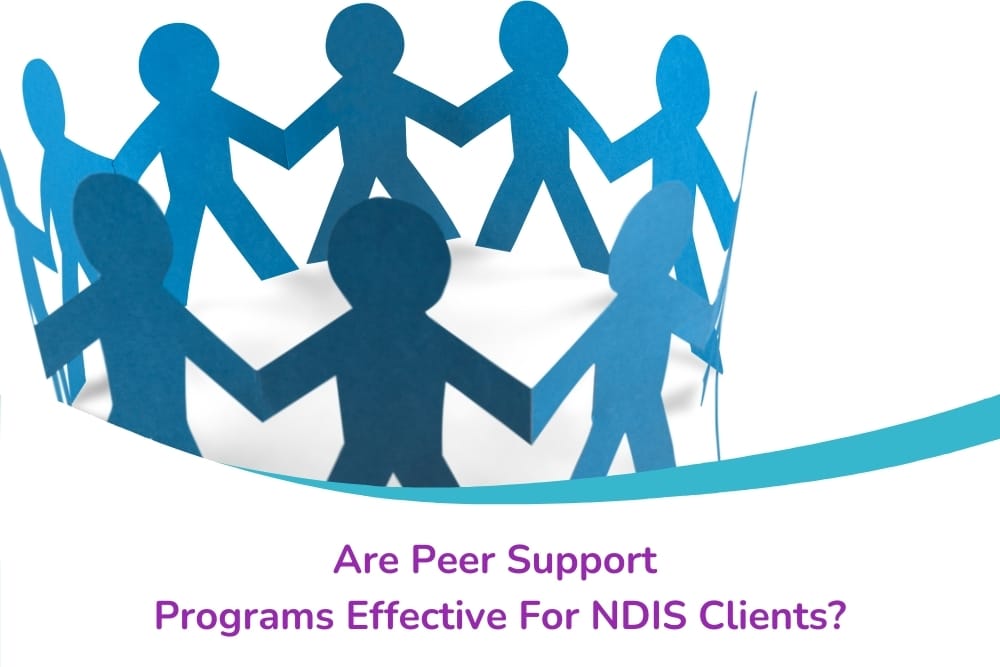The abilityNEWS Daily
The Big Story

Image courtesy Australian Disability Services
Disability Advocates Warn Against Abandoning NDIS Peer Support
Disability advocates warn that NDIS reforms could dismantle vital peer support networks—particularly for CALD communities—just when they are needed most.
Disability advocates nationwide have called on the Federal Government and the National Disability Insurance Agency to immediately halt and review pricing decisions that threaten essential supports and participant choice.
As the National Disability Insurance Scheme (NDIS) continues implementing widespread changes across Australia particular concerns have been raised about the impact on culturally and linguistically diverse (CALD) communities.
Dr Qian Fang, a University of South Australia expert in Inclusive Disability Support, emphasises that people with disabilities from CALD backgrounds should be a priority cohort in the government's NDIS reforms.
"When it was launched, it had a goal to have participants from CALD backgrounds," Dr Fang reflects. "Governments need to do more to make the NDIS and the disability system more accessible for people from CALD backgrounds."
Peer support serves as a vital lifeline for participants, helping them gain valuable knowledge to better navigate and utilise disability services. For CALD communities, these services are particularly crucial as cultural and language barriers often impede access to support.
Author’s Note
New Chief Medical Officer Professor Michael Kidd gave one of his first speeches at the National Centre for Intellectual Disability Health’s Sydney conference yesterday. Modestly describing himself as nothing more than a ‘GP to the nation’, Kidd pointed out how he’d shared coffee in the mornings working next door to the Centre at UNSW.
One part of his message was vital, and should significantly reassure many wondering about the shift of Disability into the Health portfolio. Kidd stressed that as far as he was concerned, nobody should see this as a return to the “medical model of disability”.
As if to prove this, Kidd then sat through a lengthy session devoted to culturally safe and inclusive approaches to intellectual disability health which foregrounded the experiences of individual First Nation’s people.
We’ll be bringing you a detailed report on the conference next Monday.
Nic Stuart, editor [email protected]
The Briefing

Queensland schools (image powred media)
Queensland risks condemning generations of students to segregated schooling
by Children and Young People with Disability Australia
Disability advocates have criticised Queensland’s plan to build six special schools, warning it promotes educational segregation. They argue the move undermines inclusive education and risks isolating children with disability from mainstream classrooms.
Challenges for people with disability accessing healthcare
by Physical Disability Australia
Dr Dinesh Palipana says People with Disability continue to face serious obstacles in receiving fair treatment within the healthcare system. A public webinar on 5 August will feature experts discussing ongoing gaps and potential solutions.
Mental health system in crisis: we need reform, not just psychiatrists
by Mental Health Australia
Australia’s mental health system is under severe strain, with services failing to meet rising demand across all states and territories. Community Mental Health Australia warns that without structural reform and proper support for community services, the crisis will deepen.
Everything You Need to Know about your Capital Supports Budget
by NDSP Plan Managers
The NDIS Capital Supports budget covers costly, one-off items like assistive technology, home modifications and specialist accommodation. These supports must be disability-related, goal-aligned and approved as reasonable and necessary by the NDIA.

The Wrap
Saving the NDIS doesn’t need to cost more money
by Pearls & Irritations
Sam Bennet writes the Albanese Government has a lot riding on the successful delivery of savings earmarked from the National Disability Insurance Scheme. But there is no guarantee these reforms will succeed, because the current scope of measures is inadequate to deliver the scale of change needed. And even 8% annual growth is untenable in the long term, far exceeding growth in other comparable government programs.
The Diary

